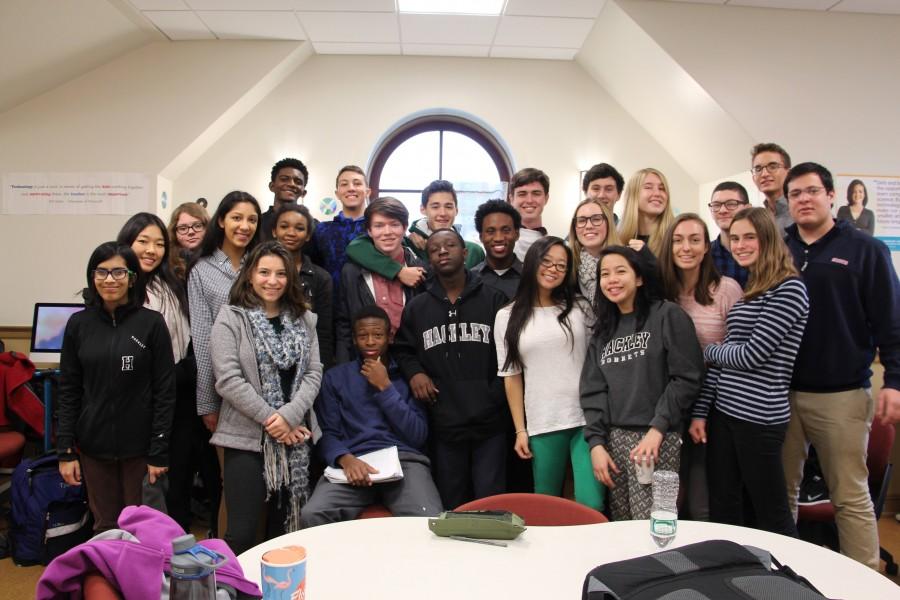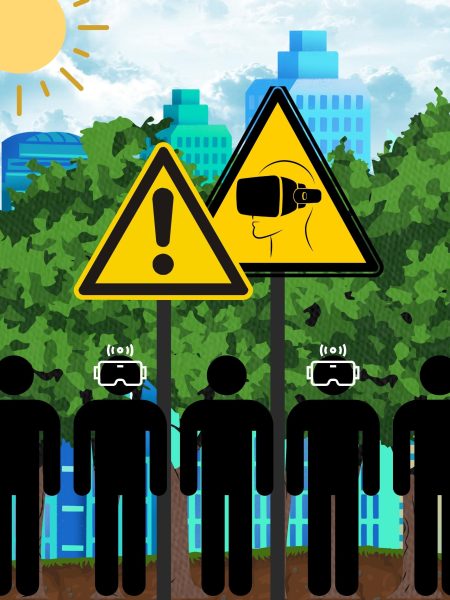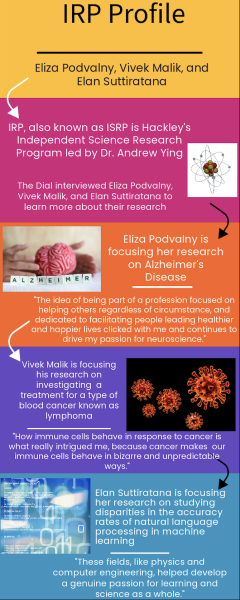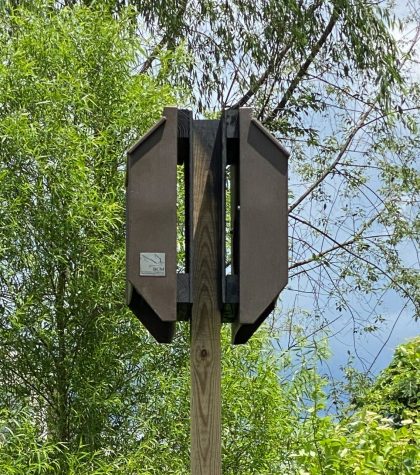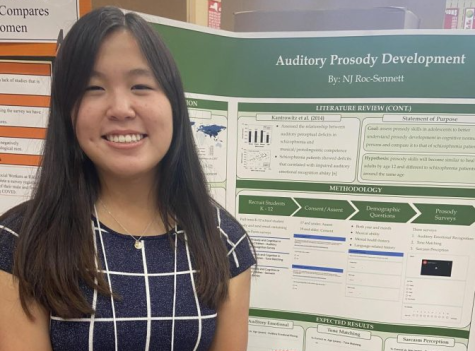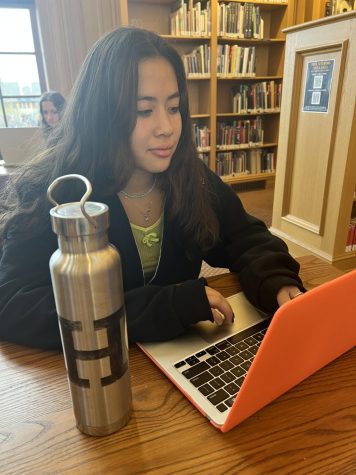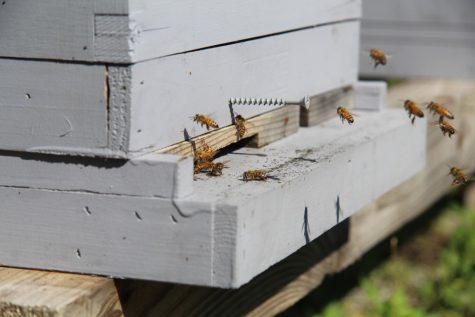Junior Girls Launch New Women in Science Club
Credit: Benjy Renton
The Women in Science Club poses at one of their club meetings.
December 17, 2015
Women in Science: a club, a stigma, a problem. Just this year, a lurking issue has been addressed with a club lead by juniors Maryrita Curcio and Olivia Selmonosky. The mission of the club is to “promote equality in an industry defined by inequality and segregation.”
Sexism isn’t explicitly a problem in the Hackley community; however, a common discrepancy is felt among the girls of the school. “I think more and more women are starting to go into the field, which is awesome,” junior Lila Wolfe said. On the other hand, there is an obvious lack of women in the AP computer science class where there are only three girls participating in the course. In the 2014-2015 school year, only 17% of AP Computer Science students were girls; this year, still only 19%. “It is impossible to generalize but I think that some girls are less likely to take a computer class because they are empowered to pursue their passions in other areas. It is really an individual choice,” junior Ashley Halloran said. Is it possible that the girls are pursuing other passions because they feel that they won’t fit into a Comp Sci class?
Upon talking to AP Computer Science teacher Melissa Tranchida, we found that she doesn’t necessarily believe that there is a concrete answer to that question either. “Some might not be interested, others might be nervous that they don’t have enough exposure to Comp Sci, some might be afraid of the stigma surrounding the field,” she said. She believes that a lot of course selections decisions are made based upon stereotypes. Mrs. Tranchida certainly hopes that this is not true. She tries her best to “create an inviting and challenging environment for [her] students so that they will want to continue learning and others will want to join in on the fun,” she said.
In college, Mrs. Tranchida had a rough time fitting into her Comp Sci major. “Most professors assumed we all had the same level of exposure to the material and a solid foundation, which wasn’t the case,” she told us. This ultimately made her very sensitive towards her students. Mrs. Tranchida wants every student to know that “the Comp Sci courses at Hackley are designed so that we can assist students with finding the right starting point.” So if you’re second guessing joining a computer science class, don’t let worries that you will not fit in because of your gender or grade level hold you back!
The Dial sat down with club leaders Olivia Selmonosky and Maryrita Curcio to talk about how their club plans to address these issues.
Q: What inspired you to create this club?
A: We were inspired to create this club by the lack of girls in our AP Computer Science class. We want to create an environment where girls feel comfortable doing what they love and don’t feel they need to hide. We are lucky at Hackley to be in such an open and welcoming environment that encourages us to follow our dreams, but in other schools this is not the case. Women are ridiculed by both classmates and teachers alike. We want, as well, to raise awareness of the world outside Hackley’s “bubble” and to prepare our students for this world.
Q: Why do you think there is such a stigma against women working in STEM?
A: We think this stems from the long held belief that women are just not as smart as men. Therefore, when it’s time for hiring men are picked over women again and again, even by other women. Then if they get the job they are paid significantly less. This stigma is not based in reason and has no evidence: women have proven when they are given an equal opportunity as men they perform just as adequately. It does stem from the innate bias, which has been ingrained into society for the thousands of years: women are just not as good as men. This thinking prevents women from taking advanced math and science classes and from getting advanced degrees after college and then from pursuing careers in the science industry.
Q: How do you believe the lessons taught and encouraged in this club will go on to affect people when they get older?
A: By teaching our students about these disparities they will be able to more easily identify when themselves or another woman is a victim of this particular strain of sexism, and hopefully we will have inspired them to stand up for the victim, especially if they are the victim. Our students are the future, because of where we are at Hackley most of them will go on to be in positions of some or great amounts of power and will be able to make a real difference.

